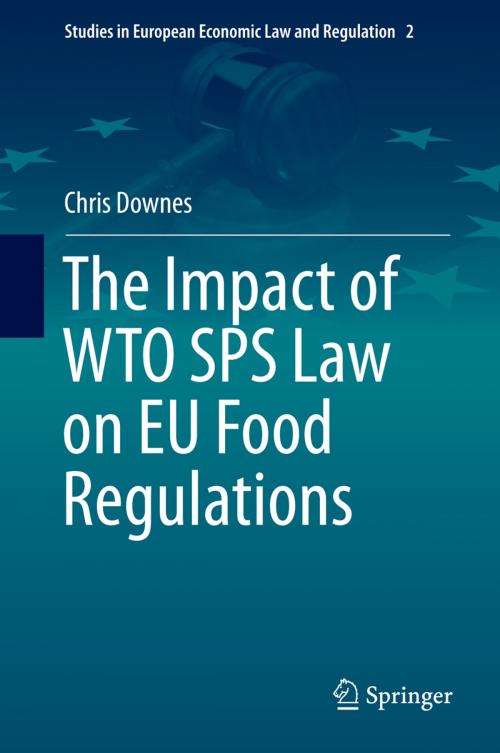The Impact of WTO SPS Law on EU Food Regulations
Nonfiction, Reference & Language, Law, International, Business & Finance, Industries & Professions, Industries| Author: | Chris Downes | ISBN: | 9783319043739 |
| Publisher: | Springer International Publishing | Publication: | March 20, 2014 |
| Imprint: | Springer | Language: | English |
| Author: | Chris Downes |
| ISBN: | 9783319043739 |
| Publisher: | Springer International Publishing |
| Publication: | March 20, 2014 |
| Imprint: | Springer |
| Language: | English |
This book brings a fresh perspective on the emerging field of international food law with the first detailed analysis of the process and implications of domestic compliance with the World Trade Organisation (WTO) Sanitary and Phytosanitary (SPS) Agreement. It investigates the influence of WTO disciplines on the domestic policy-making process and examines the extent to which international trade law determines European Union (EU) food regulations.
Following controversial WTO rulings on genetically-modified foods and growth hormones in beef, awareness and criticism of global rules governing food has grown considerably. Yet the real impact of this international legal meta-framework on domestic regulations has remained obscure to practitioners and largely unexplored by legal commentators. This book examines the emergence of transnational governance practices set in motion by the SPS Agreement and their role in facilitating agricultural trade. In so doing, it complements and challenges conventional accounts of the SPS regime dominated by analysis of WTO disputes.
It reviews legal commentary of the SPS Agreement to understand why WTO rules are so commonly characterised as a significant threat to domestic food policy preferences. It then takes on these assumptions through an in-depth review of food policies and decision-making practices in the EU, revealing both the potential and limits of WTO law to shape EU policies. It finally examines two important venues for the generation of global food norms – the WTO SPS Committee and Codex Alimentarius – to evaluate the practice and significance of transnational governance in this domain. Through detailed case studies including novel foods, food additives, vitamin and mineral supplements and transparency and equivalence procedures, this book provides a richer account of compliance and exposes the subtle, but important influence of WTO obligations.
This book brings a fresh perspective on the emerging field of international food law with the first detailed analysis of the process and implications of domestic compliance with the World Trade Organisation (WTO) Sanitary and Phytosanitary (SPS) Agreement. It investigates the influence of WTO disciplines on the domestic policy-making process and examines the extent to which international trade law determines European Union (EU) food regulations.
Following controversial WTO rulings on genetically-modified foods and growth hormones in beef, awareness and criticism of global rules governing food has grown considerably. Yet the real impact of this international legal meta-framework on domestic regulations has remained obscure to practitioners and largely unexplored by legal commentators. This book examines the emergence of transnational governance practices set in motion by the SPS Agreement and their role in facilitating agricultural trade. In so doing, it complements and challenges conventional accounts of the SPS regime dominated by analysis of WTO disputes.
It reviews legal commentary of the SPS Agreement to understand why WTO rules are so commonly characterised as a significant threat to domestic food policy preferences. It then takes on these assumptions through an in-depth review of food policies and decision-making practices in the EU, revealing both the potential and limits of WTO law to shape EU policies. It finally examines two important venues for the generation of global food norms – the WTO SPS Committee and Codex Alimentarius – to evaluate the practice and significance of transnational governance in this domain. Through detailed case studies including novel foods, food additives, vitamin and mineral supplements and transparency and equivalence procedures, this book provides a richer account of compliance and exposes the subtle, but important influence of WTO obligations.















